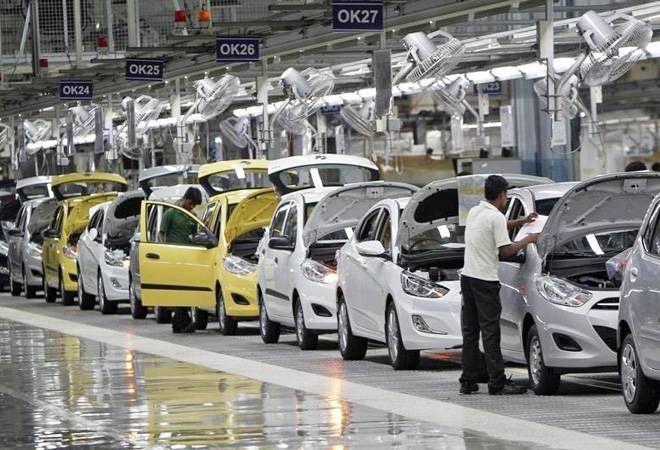Due to the ongoing Covid-19 pandemic, large scale manufacturing has also shut down ever since social distancing and quarantine laws have been set into place. As a result, the auto industry in Pakistan is suffering with closed offices and dealerships, stagnant production lines and mostly importantly, no demand. With investors being cautious with their social distance and also their capital, auto manufacturers faced the unprecedented occasionof virtually zero sales in the month of April 2020 compared to previous months on a year-on-year basis as reported in various media.
While the pandemic has undoubtedly caused investor panic, forced companies to delay their vehicle purchase orders and cut down on households’ appetite for local and imported cars, a lot of folk don’t realise that sales figures from the auto industry had already started falling in the red zone well before the pandemic.
For the investors, which is perhaps the biggest demand-influencing segment of customers, confidence was already low due to a number of ongoing reasons, the biggest one being, the PTI govt’s policy on sale and purchase of vehicles and the costs associated with registration and transfer of vehicles, in addition to legislation that prohibited sale of vehicles on “open-letter” and enforced transfer of ownership within a certain time frame.
For investors and house hold buyers, another major factor was the hike in prices of locally assembled and import vehicles owing to depreciation of dollar-rupee exchange rate as well as increase in import duties and inflation, which almost immediately skyrocketed the prices of new and used vehicles in Pakistan. The prices of locally assembled vehicles have since peaked, reaching its highest. It is worth taking note here that the dollar-rupee exchange rate, the SBP’s interest rate as well as inflation have since fallen.
An often-ignored factor that most companies in Pakistan fail to take into consideration is millennial spending habits. While a lot of wiser and older folk may disagree on the change in young peoples’ spending preferences influencing overall demand for vehicles in Pakistan, one cannot fully make a concrete case in the favour of or against this factor in the absence of data but a visible change in young people’s attitude towards vehicle ownership, their knowledge of the environmental impact of it and their readiness to adapt to car-sharing and vehicle-pooling platforms can at least be observed at large thanks to disruptive technologies emerging from the IT sector.
While the way forward for the auto industry in Pakistan is a hard one to predict for most analysts as we live in unprecedented times, but those with their eye on global data know one thing for sure: overall global demand was on its way down way before the covid-19 pandemic so it is going to take a lot more than just reopening business to get numbers back up. In Pakistan, it would not only take effort from vehicle manufacturers and dealers, but also from the government in terms of policy that allows the local industry to become less import-dependent and sustainable in the long-run, by keeping stable fiscal and monetary policy that ensures steady exchange and interest rates, a business friendly framework that allows for ease of business to attract foreign investment, and mostly importantly enabling a significant increase in the quality of labour by facilitating the TVET framework and integrating it into the mainstream education framework of Pakistan.
It is worth mentioning here that the government has been trying to come up with an EV Policy for the production and sale of electric vehicles locally, which for the moment seems on a secondary priority level for the government with the situation at hand, and as insiders reveal, owing to strict opposition from existing industry stakeholders including manufacturers. The plan also seems ambitious as we not only lack the technical and labour capability to make electric vehicles and specifically rechargeable batteries, it is also problematic knowing that none of the stakeholders, especially the Ministry of Climate Change ever considered the biggest fact in going electric, something that countries with electric vehicles adopted beforehand: making the source of the energy renewable, either fully or partially with most countries having set timelines for making their entire electric grid “smart” and fossil-fuel free. As we know, most of our energy in Pakistan comes either from coal or other fossil fuels, with our electricity grid network not exactly being modern, let alone the ongoing shortage of electric power that Pakistanis experience in all areas of Pakistan especially in hotter months.
On the contrary, one could argue that the oil market crash causing some of the lowest oil barrel prices in recent history could prop up the demand for vehicles globally, it is widely acknowledged by the global businesses, the scientific community and government entities that oil is nonetheless a finite energy resource which is fast running out, regardless of what prices OPEC agrees to set. And in Pakistan, owing to the exchange rate concerns, consumers can never fully benefit from the effects of the global oil crash ironically.
Another major factor that would influence the way forward for the local industry as mentioned earlier is, how local auto makers adapt their strategy to influence their biggest target market, i.e. the millennials and gen z. They would have to get used to their spending preferences and comprise on the quantity of their sales to the quality of their sales by building trust and ease at the end-user level. Companies need to realise that millennials and young people no longer just care about the product but also the value associated with it, including the user experience, cost of up-keep and the overall impact on the environment. It would mean not only making the sale but technologically enabling ease of the after-sales relationship and cutting down costs to keep the customer within their service network and providing a safe, seam-less user experience without the hassle of traditional ownership issues.
By Muhammad Inam Shahid
*The writer would appreciate your views and insights at [email protected]
